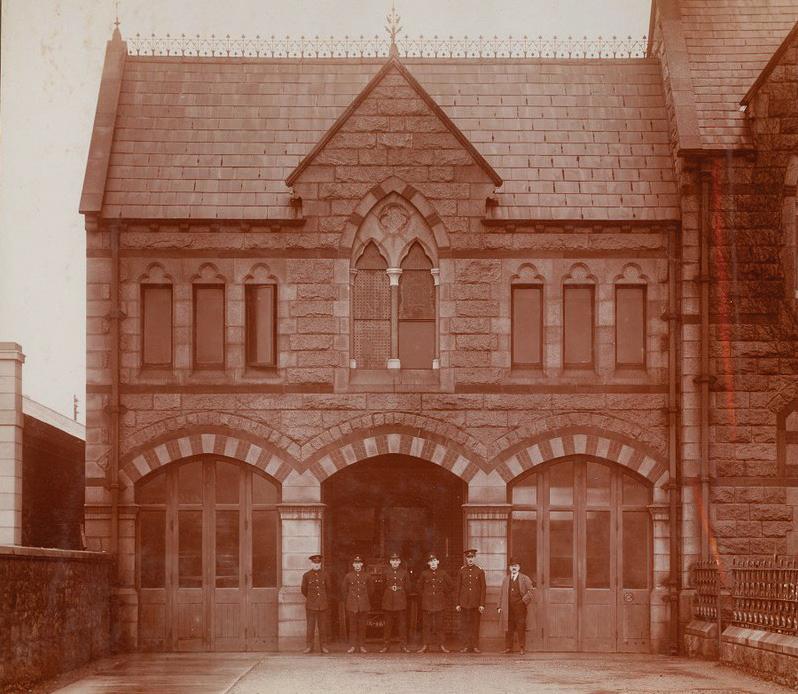
2 minute read
SNAPSHOT OF HISTORY
Pembroke Fire Station.
Recounting a strange incident at a fire station in Ballsbridge 100 years ago.
Today’s frontline services get along very well, but looking back over the troubled history of the State, this wasn’t always the case, especially when the nation was caught up in Civil War. 100 years ago in January, a curious incident occurred that illustrated just how wild and dangerous life could be for those working to keep the city safe as various disparate organisations fought to take control.
On 9 January, 1921, members of the British-formed Auxiliary Division of the Royal Irish Constabulary from Beggar’s Bush Barracks, armed with revolvers, raided the now defunct Pembroke Fire Brigade Station in Ballsbridge and threatened the lives of the firefighters on duty.
The reason was never made clear, but the same group also stole a car from a neighbouring garage, which in a subsequent inquiry raised questions about whether alcohol had been a factor.
The firefighters reported the incident to the authorities, but on 15 January they were again visited by this group of Auxiliary men, who once more threatened those on duty, demanded that the men who reported them be brought out, and allegedly held a pistol to the head of the superintendent on duty.
As with the previous week, they didn’t stop there, and this time they left the fire station and held up two Dublin Metropolitan Policemen and stole their arms and ammunition. They were captured soon after by their own commanding officer, General Crozier, who had no doubt been keeping a close eye on them, and were apparently court-martialled.
The details of any further action taken by the Auxiliaries or the RIC is sketchy, but the incident was raised in the UK parliament when a Mr MacVeagh asked the Chief Secretary of the Commons and Attorney General for Ireland Mr Denis Henry about it.
Mr Henry assured him that “severe disciplinary action” had been taken, but gave no further details.
This was followed up a few weeks later when a Mr Hayward asked the then-Chief Secretary to Ireland Viscount Greenwood if the court-martial had taken place, and whether Crozier (who had by now resigned over what he saw as the official condoning of the actions of the Auxiliaries at Croke Park on Bloody Sunday) had given evidence.
In reply, Greenwood said that there had been a full official inquiry that showed the allegations of twice threatening the firefighters with revolvers couldn’t be substantiated due to a lack of evidence. The ‘group’ of Auxiliaries also seemed to have been whittled down to just two men, both cadets.
Further questions in parliament were answered with assurances that “they are looking into it”, but it seems that no further action was taken other than to use the two cadets as scapegoats who may, or may not, have been reprimanded for their actions.
As more serious events unfolded over the course of 1921, this incident was forgotten, and by the next year the Auxiliaries were disbanded as the Anglo-Irish Treaty was signed.
It’s an interesting snapshot of history from 100 years ago, and a reminder of just how precarious life could be during a time when the country teetered on the brink of violence every day.










